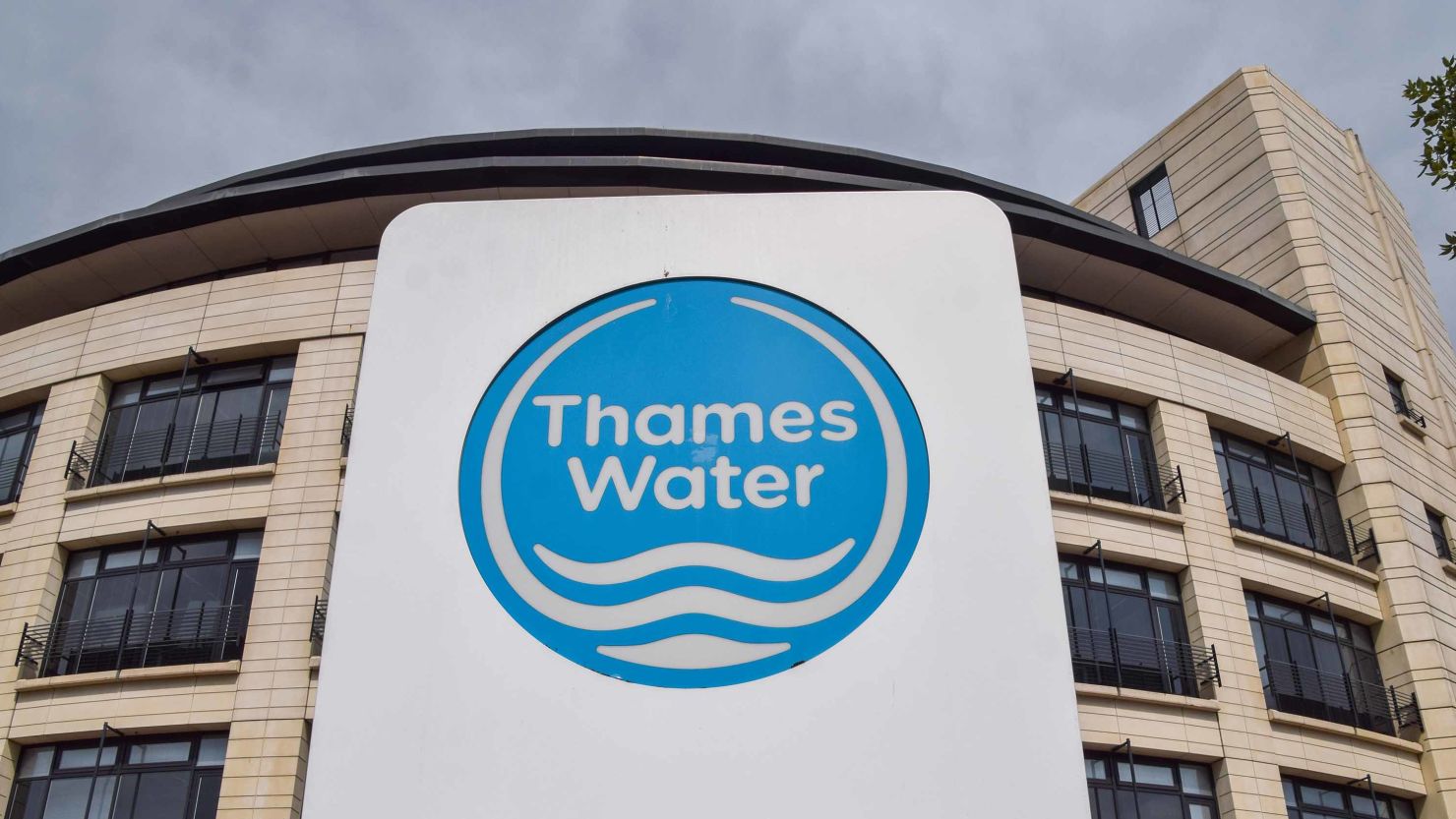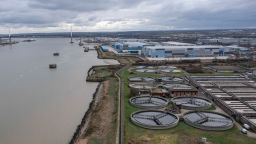Investors in Thames Water have agreed to put an extra £750 million ($962 million) of equity funding into the troubled utility to hold off a temporary takeover by the government. The amount is less than the company was hoping to raise.
Britain’s biggest water company said Monday that shareholders would provide the additional cash to support a turnaround plan running to March 2025 but warned that “significant additional funding” would be needed beyond that date.
“The additional investment announced today is the largest equity support package ever seen in the UK water sector and underscores our shareholders’ commitment to delivering Thames’ turnaround,” the company’s chairman, Ian Marchant, said in a statement.
The amount is less than the £1 billion ($1.3 billion) the company was originally seeking and is subject to certain conditions, including the preparation of a sharper business plan that “underpins a more focused turnaround that delivers targeted performance improvements for customers, the environment and other stakeholders.”
Thames Water, which provides water and wastewater services to 15 million people in London and the southeast of England, has been at the center of a wider crisis in the sector. Heavily indebted water companies in England and Wales are under growing financial pressure as interest rates soar, and they must also invest billions of pounds to upgrade aging infrastructure and tackle sewage spills and leakage.
The volume of work required over the coming years has water regulator Ofwat “very concerned” about the impact on customer bills, Ofwat chairman Iaian Coucher told UK lawmakers last week.
Thames Water, which has a £14 billion ($17.9 billion) debt pile, anticipates that an extra £2.5 billion ($3.2 billion) of equity funding will be needed in the five years to 2030 to help it deliver its turnaround.
Although it has yet to secure those funds from shareholders, interim co-CEO Cathryn Ross said the utility was not at risk of being taken over by the government.
“We’re absolutely not close to that trigger,” Ross told BBC radio Monday. She was referring to the point at which the company would be placed into a special administration regime, a form of insolvency that ensures services to customers are maintained while the government tries to find a buyer for the business.
The company’s £4.4 billion ($5.6 billion) of cash and credit facilities are “absolutely enough to pay everything that we think we need to pay this year, next year and into the future,” Ross added, noting its debt was “coming down” and amounted to 77% of its asset value.
Water companies boosted
Investors in listed UK water companies cheered news of Thames Water’s equity injection. Shares in Severn Trent (STRNY) rose 2%, United Utilities (UUGRY) gained around 1.2% and Pennon Group, which owns South West Water, climbed 1.8%.
Several other water companies are also hoping to tap investors in the near future to help fund long-term investments into infrastructure.
Water companies in England and Wales have racked up more than £60 billion ($76.5 billion) of debt since they were sold to private investors in 1989, while raising little new equity from shareholders and paying out billions of pounds in dividends.
Although their track record on sewage and leakage has improved since privatization, the situation is still dire, with more than 300,000 sewage spills recorded last year, according to to the UK Environment Agency.
According to the water regulator, Ofwat, companies in England and Wales leaked 51 liters of water per person per day between April 2020 and March 2021 — enough to fill more than 1,200 Olympic-size swimming pools every day.
Thames Water has a track record of poor environmental performance, having been fined more than £30 million ($38.4 million) since 2017 for several water pollution incidents, according to the UK Environment Agency. It reported nearly 8,000 sewage spills for the nine months to September 2022.
The company counts the Ontario Municipal Employees Retirement System as its biggest shareholder. Other large investors include the Chinese and Abu Dhabi sovereign wealth funds and the Universities Superannuation Scheme, a pension fund for the academic staff of UK universities.









